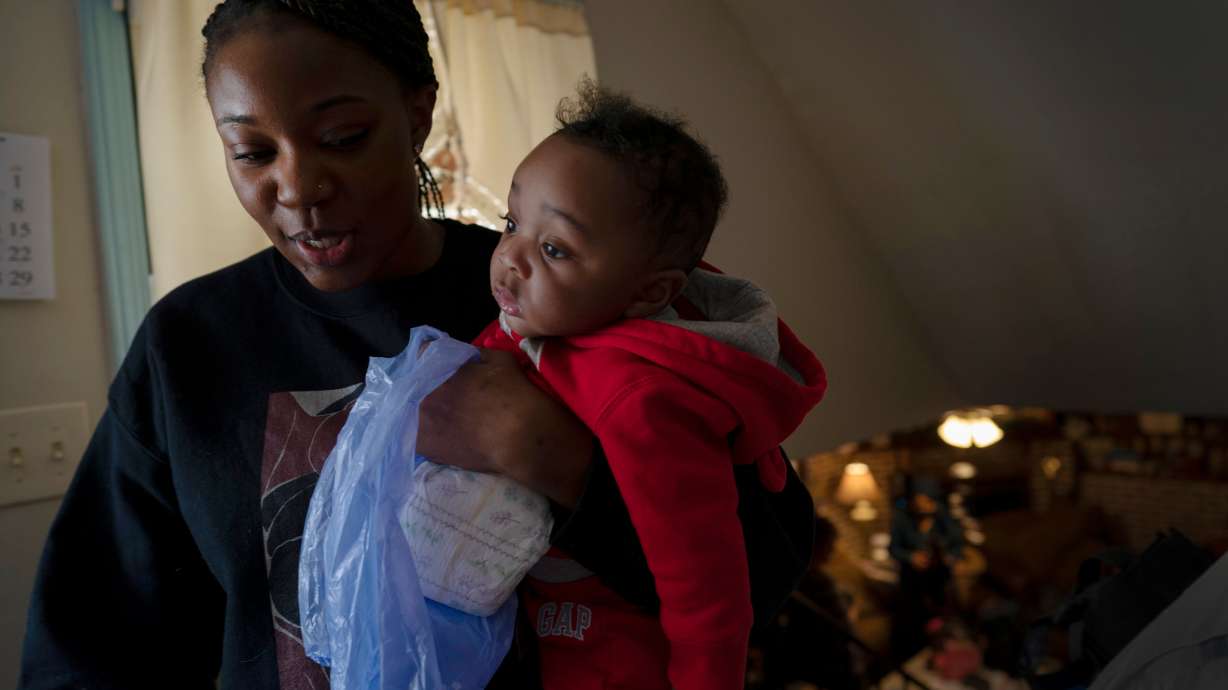Estimated read time: 3-4 minutes
This archived news story is available only for your personal, non-commercial use. Information in the story may be outdated or superseded by additional information. Reading or replaying the story in its archived form does not constitute a republication of the story.
SALT LAKE CITY — The number of maternal deaths in the U.S. declined in 2022 after several years of increases, according to new data from the Centers for Disease Control and Prevention released Thursday. And the number of live births climbed but just a little.
According to the CDC's National Center for Health Statistics report, there were 3,667,758 live births in 2022 and 817 maternal deaths. There were about 3,500 more births in 2022 compared to 2021. In 2021, there were 1,205 maternal deaths.
The maternal mortality rate was 22.3 per 100,000 live births, down from 32.9 in 2021 — a year with the most deaths since 2018. The rate in 2022 was highest among women age 40 and older, at 87.1 deaths per 100,000. The lowest rate was among Hispanic women younger than 25, at 9.5 per 100,000.
"I think that the bump (in 2021) reflects the pandemic, and we're returning to pre-pandemic levels," study author Donna Hoyert, a health scientist at the CDC's National Center for Health Statistics, told NPR.
This maternal mortality count included women who died of pregnancy-related causes within 42 days of the pregnancy's end, "irrespective of the duration and site of the pregnancy, from any cause related to or aggravated by the pregnancy or its management but not from accidental or incidental causes," the report said. While this report tracked deaths for six weeks, many official reports extend the count for maternal mortality to a full year with pregnancy-related deaths.
The CDC previously gathered data from Maternal Mortality Review committees in 36 states between 2017 and 2019, which was among the largest compilations of individual death data. The report found that the most common reason women died in the period that included pregnancy, delivery and up to a year postpartum depended on race and ethnicity.
But 84% of the deaths could have been prevented, the report said. "The six most frequent underlying causes of pregnancy-related death — mental health conditions (22.7%), hemorrhage (13.7%), cardiac and coronary conditions (12.8%), infection (9.2%), thrombotic embolism (8.7%), and cardiomyopathy (8.5%) — accounted for over 75% of pregnancy-related deaths," per that report.
In 2022, the highest maternal mortality rate was among non-Hispanic Black women, at a rate of 49.5 per 100,000 live births. That represented a significant drop — the largest — from the previous year, when the maternal mortality rate for Black women was nearly 70 per 100,000 live births. But it shows huge racial disparities, as well.
Maternal mortality dropped in each of the major racial groups, with 13.2 per 100,000 for Asian women and 16.9 for Hispanic women and 19 for white women.
By age in 2022, the maternal death rate for those 25-39 was 21.1 per 100,000 compared to 14.4 for those younger than 25.
Time to get help
CDC has launched a "Hear Her" campaign to try to reduce the number of maternal deaths. It includes a list created by the Alliance for Innovation on Maternal Health of urgent warning signs a woman is in trouble during pregnancy or for a year postpartum. Those warning signs are:
- High fever.
- Persistent or worsening headache.
- Vision changes.
- Severe nausea, vomiting.
- Severe, persistent belly ache.
- Baby's movement stops or slows in pregnancy.
- Vaginal bleeding or fluid leak during pregnancy or after.
- Extreme swelling of face or hands.
- Thoughts about self-harm or hurting the baby.
- Trouble breathing.
- Overwhelming exhaustion.
- Severe swelling, redness or pain in leg or arm.
- Chest pain or rapid heartbeat.










